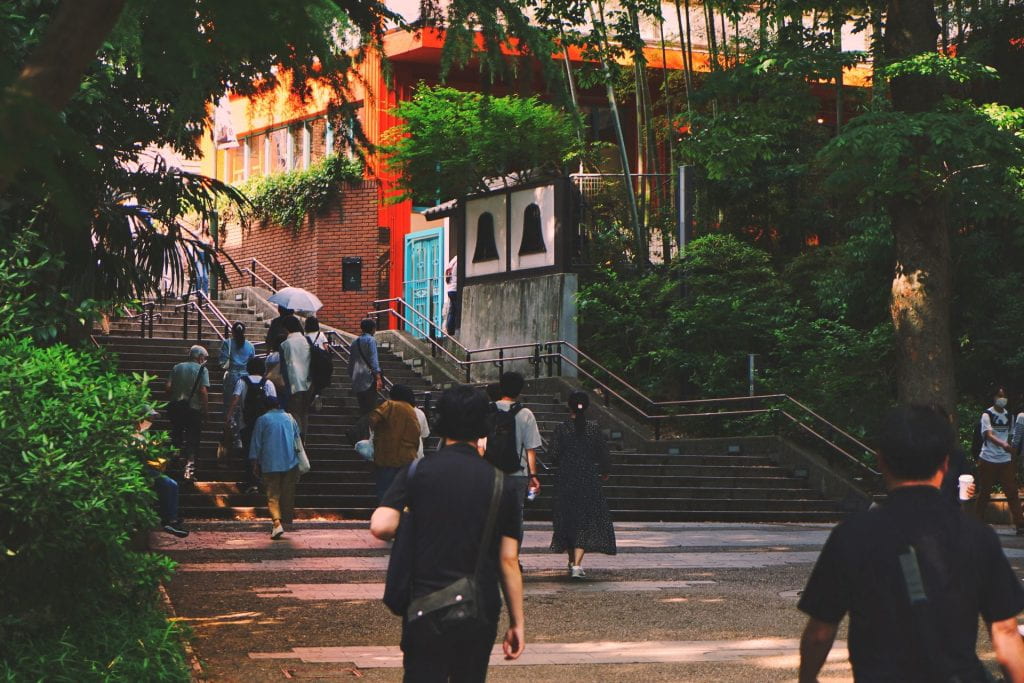Assistant Professor of East Asian Languages and Cultures and of Film and Media Studies at Washington University in St. Louis
Play, Rewind, and Swipe Forward: The Emergence of Horizontal Flow in the Age of Streaming Media
Time: 11am-12:30pm, Friday, March 29
Location: Cobb 311
Please note the unusual time and place for APEA!
★Co-hosted by the Digital Media Workshop★
★This event is co-sponsored by the Center for East Asian Studies at the University of Chicago with support from a Title VI National Resource Center Grant from the United States Department of Education.★

Abstract: Known alternatively by various names such as the seek bar, the progress bar, or jindu tiao in Chinese, the playback bar is a standard graphical control element in the (haptic) graphic user interface of streaming media today. It is the major tool for video streaming and simultaneously the key metaphor for the progression of time and life in our media-saturated societies. The playback bar is pervasively presented in our streaming experiences – so pervasive that its techno-cultural connotations are often unnoticed. This paper focuses on the often-ignored playback bar with the aim of exploring the streaming interfaces and serial narratives in contemporary China. It traces the replacement of media control buttons with the progress bar in the virtualization and computerization of the audio/video playback process. The paper further examines the emergent design of seek-able playback bars controlled by swipe gestures with the advent of the touch-based streaming interface. I argue that the playback bar that stretches itself horizontally from left to right solidifies a visual representation of the hitherto abstract concept of progress. It subtly transforms the time spent or consumed watching videos into time used or invested in accumulating information, knowledge, and capital. Through a comparative study of the playback bar and interface design strategies of American streaming services providers (YouTube, Netflix, and Hulu) with their Chinese counterparts (iQiyi, Tencent video, and Mango TV), I show how Chinese streaming platforms develop a distinct (tactile) interface design – swiping left and right across the touchscreen to rewind and fast-forward videos. This design bifurcates from the default designs that American media players stipulate: the quick 10-second rewind and fast-forward icons. This distinction underscores a divergence in interface design philosophies: unlike American interface design’s desire to retain older media experience hinging on control buttons, the Chinese approach creates a new perception of “streaming,” which envisages streaming as a continuous, horizontal flow of moving images across the screen. This perception reimagines how users interact with and engage in streaming videos and reshapes the contemporary experience of streaming time.
Presenter: Jianqing Chen (PhD in Film and Media, the University of California, Berkeley) is an Assistant Professor of Film and Media Studies and East Asian Languages and Cultures at Washington University in St Louis. Her fields of research and teaching cover cinema and media culture in China, Hongkong, and Taiwan, new media technologies and aesthetics, surveillance, global techno-capitalism, post-socialist culture and critique, and feminist media theory. Combining a global perspective with a critical race and gender approach, her research explores popular emergent media and their roles in creating new modes of subjectivity and subjectivization in post-socialist China. She is completing a book manuscript titled Touch Screen: Everyday Media in Contemporary China.
Discussant: Thomas Lamarre (PhD in East Asian Languages and Civilizations, the University of Chicago) is a scholar of media, cinema and animation, intellectual history and material culture, with projects ranging from the communication networks of 9th century Japan (Uncovering Heian Japan: An Archaeology of Sensation and Inscription, 2000), to silent cinema and the global imaginary (Shadows on the Screen: Tanizaki Jun’ichirō on Cinema and Oriental Aesthetics, 2005), animation technologies (The Anime Machine: A Media Theory of Animation, 2009) and on television infrastructures and media ecology (The Anime Ecology: A Genealogy of Television, Animation, and Game Media, 2018). Current projects include research on animation that addresses the use of animals in the formation of media networks associated with colonialism and extraterritorial empire, and the consequent politics of animism and speciesism.



